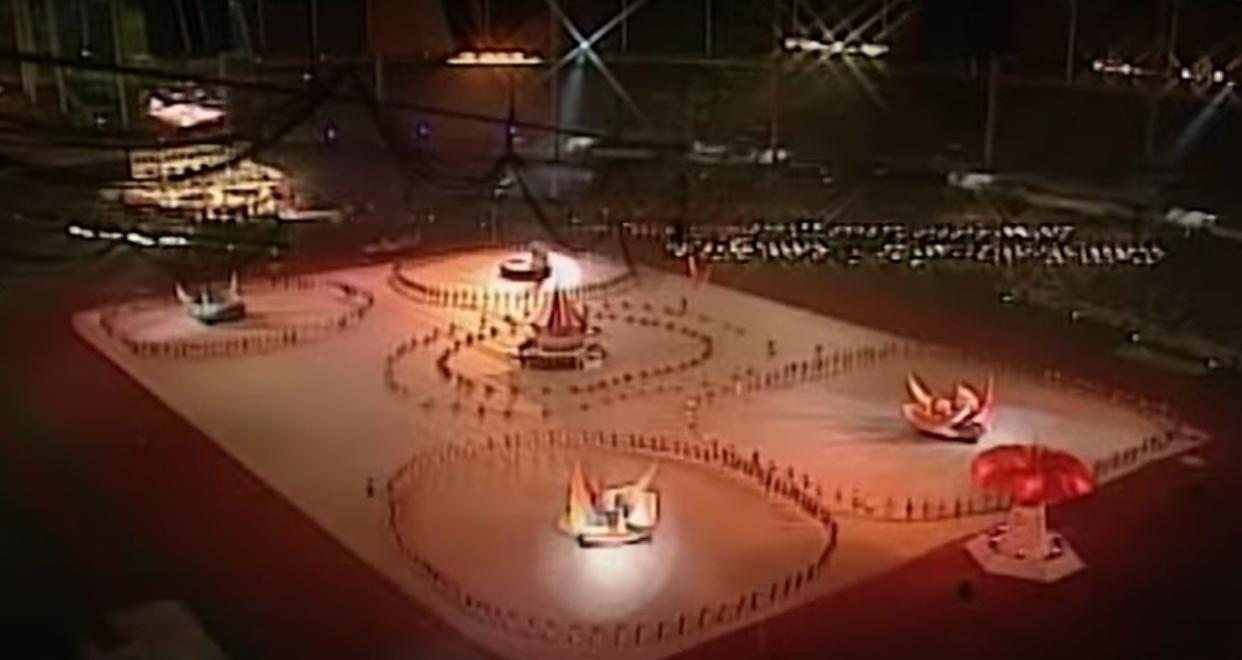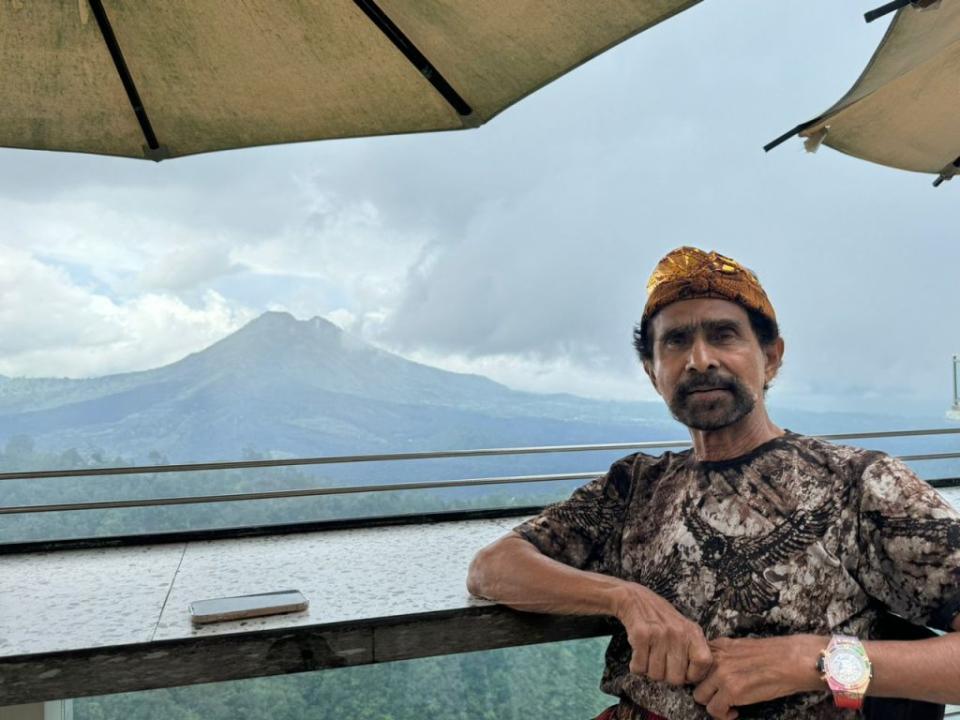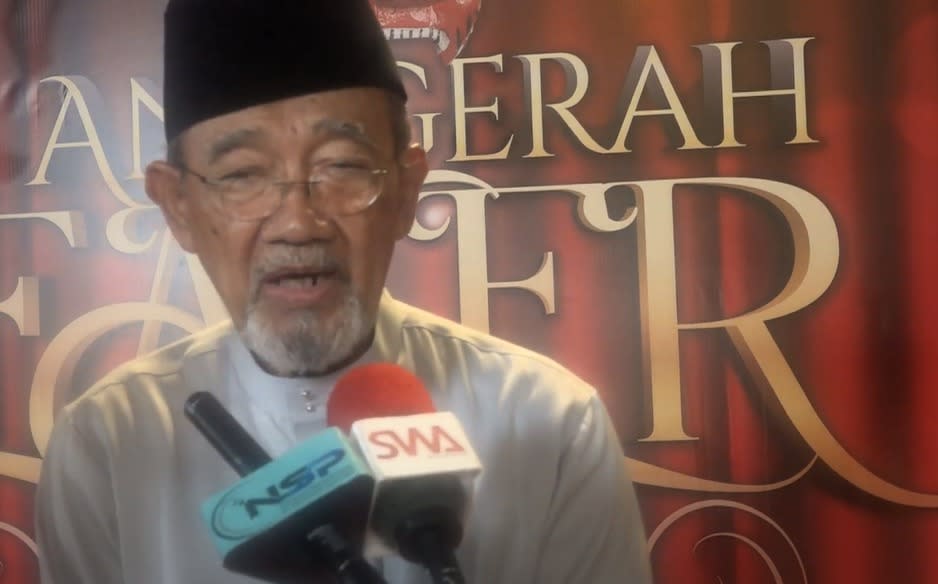Commonwealth Games 2026: ‘Dicey’ for Malaysia, say duo behind 1998 Commonwealth Games opening, closing showpiece

It will be too dicey for Malaysia to host the 2026 Commonwealth Games, as two years may be too short a time to put together a world-class opening and closing performance befitting the Games.
This was the view of Professor Emeritus Datuk Dr Mohamed Ghouse Nasuruddin, director of dance for the opening and closing ceremonies of the 1998 Commonwealth Games in Kuala Lumpur.
Ghouse, who is Emeritus Professor of Performing Arts at Universiti Sains Malaysia, said it took the team close to two-and-a-half years to conceptualise, gather dancers, choreograph, and rehearse for the 1998 Games.
“I was the director of the dance segment, together with several other choreographers and dance instructors. We had a team, led by Sufiat Mukri, the director of Kompleks Budaya Negara. I had several other choreographers from the Culture, Arts and Tourism Ministry, and other individuals helping, and it took us more than two years of preparation,” said Ghouse, 80.
“Planning was important because logistics came into play. We went all over the nation, getting the right people, the right ideas. There were thousands involved in the performance, including school children.”
Ghouse has written seven books on dance, music, and theatre. He also writes and directs plays at local and international levels. He said the choreography for the 1998 Games was not very complicated as it was more of ‘formation dancing’.
“We took close to two-and-a-half years to rehearse and plan the entire choreography. It was a lot of hard work. I was lecturing then, and I had to take leave from work for two years. I was lucky that my university allowed me to leave campus to prepare for the Commonwealth Games,” said Ghouse.
Ghouse was sceptical if Malaysia would be able to pull it off again if it were to host the Commonwealth Games in 2026.
“I don’t think we have enough time to train people for the opening and closing show. There is also logistics to think about. It is too dicey. It involves multiple ministries and agencies, including our Armed Forces, and thousands of people, mainly volunteers.
“If we want to take the risk, it’s okay, to do it, but we must totally commit to it, full-time. Everyone basically volunteered for the 1998 Games, including the dancers.”

“Digital comes into play, and visuals are going to be different... all these need to be designed. It’s all about digital projection, and we must offer something different to the world, as it is no longer just about body movement.
“In 1998, the International Olympic Committee regarded our opening ceremony to be on a par with the Olympic Games. It was very rewarding to hear that. But it is now a different ball game altogether.”
On March 11, the Olympic Council of Malaysia said that the Commonwealth Games Federation (CGF) had offered Malaysia the opportunity to replace Victoria in Australia, as host. CGF is offering £100 million (RM602 million) to support the local delivery and legacy planning. It will collect A$380 million (RM1.17 billion) from Victoria as a penalty for withdrawing as host.
Prime Minister Datuk Seri Anwar Ibrahim said Malaysia will decide this week on whether or not to accept the offer as host. The paper for the organising of the 2026 Commonwealth Games will be presented to the Cabinet tomorrow.
Malaysia won the bid to host the 1998 Games in 1992 and had an entire six years to prepare for the sporting spectacle, which saw the participation of 3,633 athletes from 70 Commonwealth nations.
And while it took buckets of sweat and tears to pull off a world-class act in 1998, Ghouse, like many of his peers in the arts scene, said they did it for the love of the nation.
Asked if he was paid for his work for the 1998 Games, Ghouse said that it was not about the money, but being able to use the arts and the dance medium to enhance the event.
“It was not much. If I recall, it was less than RM2,000. Dance is my passion. It was all about contributing to nation-building, in this case, the third biggest sporting event in the world.”
Ghouse was also full of praise for Sufiat, saying that the latter was instrumental in the conceptual framework and overall visuals of the opening and closing ceremonies, which were attended by Prince Edward, Queen Elizabeth, and Prince Philip of the United Kingdom.
“He (Sufiat) was the energy and brains behind the success of the opening and closing ceremonies,” said Ghouse. The opening was held on Sept 2, 1998, while the closing ceremony was on Sept 21.
Twentytwo13 contacted Sufiat for his views, and like Ghouse, he felt that it would be a Herculean task to pull it off again.
“Back then, I was the first director of Kompleks Budaya Negara (now Istana Negara). My role during the Commonwealth Games was to oversee the opening and closing ceremonies, and to also showcase our Malaysian heritage," said Sufiat.
“My primary role during the Games was the main co-ordinator for the arts. We had a multi-racial entity and we wanted to portray this in our performance. I spoke to many people of different races, cultures and heritage in Malaysia to get input for our show.
“I helped coordinate the costumes, props, and music. I had many employees in the ministry and it was easy to get things going."

“Now, with less than two years to go, perhaps we can still pull it off, given the technology we have at our disposal. Back then, everything was done manually. But I don’t know for sure, if it’s indeed possible.
“What the government needs is someone who has good decision-making skills. This person must not just have the experience of pulling off a show of this magnitude, he or she must also be highly intellectual.”
“I don’t think I can do it again. Art is something that you know you either still have it or you don’t. The scene today is beyond me to understand. I don’t think we have much time left to pull off a full-capacity performance... unless they decide to opt for simple choreography.
“The arts is not static and it continues to move. As we progress, dance movements too, will change. I can give advice but I won't be able to make decisions for an event of such magnitude."
Sufiat is widely regarded as a ‘mastermind’ in Malaysia’s arts, theatre, dance, and set design scene. He is a recipient of the ‘Tokoh Teater Sepanjang Zaman’.
Separately, Ghouse, who is also a columnist with Twentytwo13 and writes on governance, culture, heritage, and education, said he believes Malaysia may be inclined to accept the offer by the CGF to organise the Games in 2026 as it would position the country “in the eyes of the world”.
“If the government accepts the offer, it looks good for international relations, and we will be seen as the ‘saviour’ of the Games. It will enhance the country’s image, and earn us international mileage.
“Anwar’s name will also be etched into the history books as someone who was willing to accept challenges and take bold risks,” added Ghouse.
The post Commonwealth Games 2026: ‘Dicey’ for Malaysia, say duo behind 1998 Commonwealth Games opening, closing showpiece appeared first on Twentytwo13.


